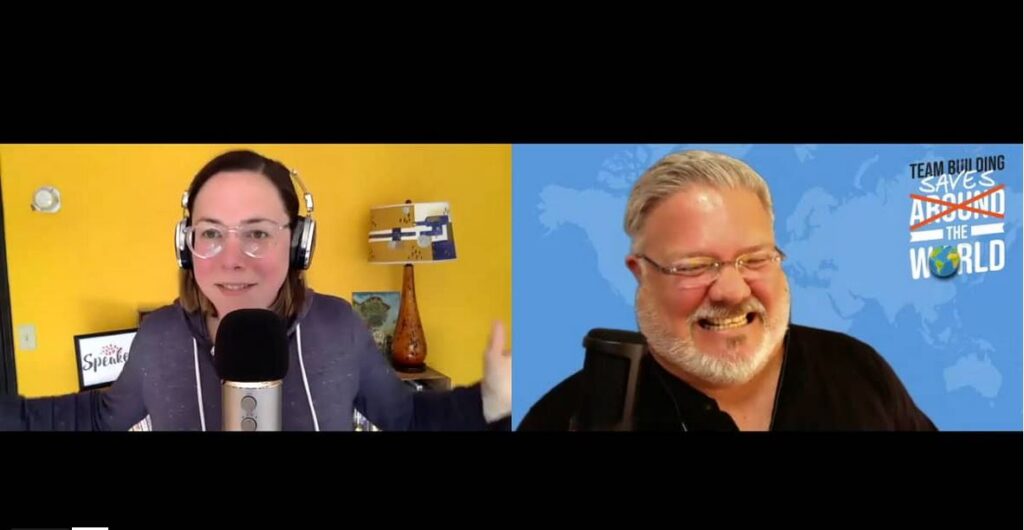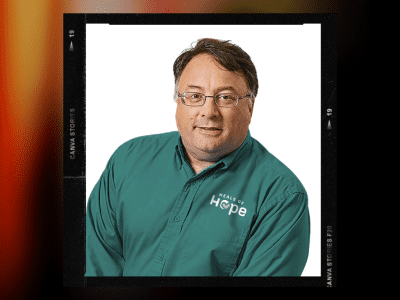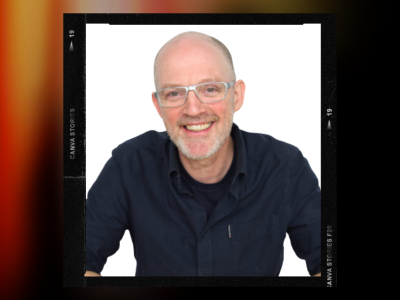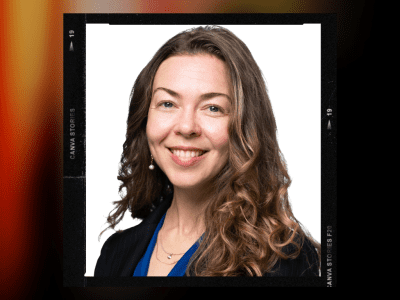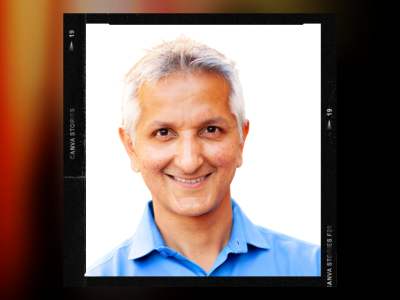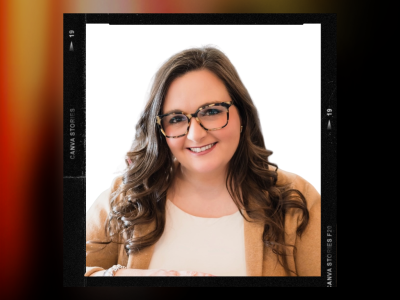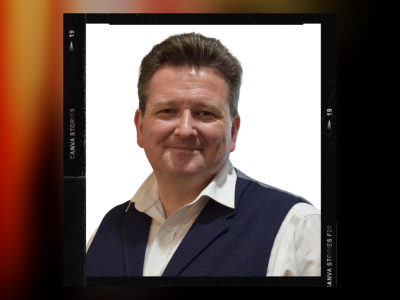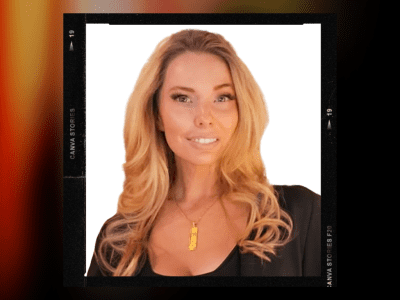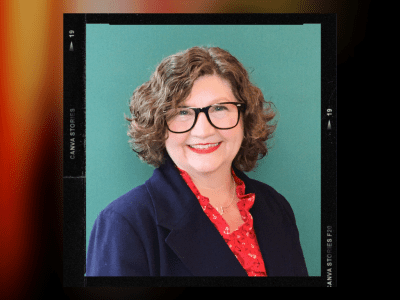Speak Up Culture
w/Angela Lussier
Use the buttons above to listen now.
Transcript - Speak Up Culture
Rich: On this episode of team building’s saves the world. How did the speaker sisterhood take a leadership role in that become part of that? And what, what is it that you did to help these women make sure that their voice was being heard?
Angela: But it’s the breakthrough moment for everyone because we often find, and this is what happens in the clubs all the time.
That the thing we’re most ashamed of is the thing everyone else can relate to. You’re an actor and you know, so you probably do a lot of this,
never do it onstage. That’s the one thing I’ve learned.
This is an opportunity for us to show up as ourselves and present who we truly are and to, to own that. And when we let our shame out. Grace can enter
Rich: hello team once again, it’s me and old friends, Rich Rininsland host of team building saves the world. The show where I speak to the leaders and innovators of the team building industry from all of them. Across the globe, trying to find out what about that industry is so important, especially in the world of today.
And today it’s time to hear from the women as we speak with the CEO and founder of the speaker, sisterhood, Angela Lussier and first I want to send thanks out to my support is that team bonding. If your team is ready to learn about teamwork through the power of play, the visit team bonding.com to learn more.
And now team join me in welcoming an author, a Ted talk speaker, and a woman who has made a career, helping women find their speaking voice. Angela Lussier
that’s just a small continue to people. I hide under my desk just to applaud you. So hello.
Angela: Thank you so much for that. I feel so pumped up right now.
Rich: It always helps to have a little dance party before we begin.
Angela: I feel like I’m on the Chicago bulls. I just like came in to be
Rich: awesome. So Angela, the first way I’d like to start in all these things is just tell my team a little bit about yourself and how you got started in the field.
Angela: Well, it’s funny cause I’m a professional public speaker, but I was not born that way. I was so shy growing up. I was the one in the back of the room who was too shy to raise my hand. Never volunteered to go up to the front of the class. I did whatever I could to blend in to be invisible. And then I realized when I got into my early twenties and my first job after college, that being invisible is actually a horrible career strategy.
It’s like, wait I’m so this doesn’t work anymore. Now, what do I do? And went to a trusted manager in my office. I was working at a radio station at the time. Who said, you know what, why don’t you try Toastmasters? And I had never heard of Toastmasters. The first thought that came to mind was like a bunch of 80 year old men in a library that had like Tiffany lamps.
And we’re just telling stories about the war. And I was like, I just don’t think Toastmasters is for me, you know? And he said, why don’t you just go check it out? So it was nothing like that. And that’s where I started to come out of my shell. Learn the value of communication and learn that. Not only did I have something to say, but I actually loved public speaking.
And so that is the very short version of how I ended up here today as a public speaker, who is helping other women find their voice.
Rich: That’s fantastic. But just for my audience, because I don’t know how many of them do know what is Toastmasters and how did it actually help you?
Angela: Well, Toastmasters is an international, nonprofit communication and leadership organization with chapters all over the world.
They started in the 1940s and they’ve been going ever since, because they have a model that works. They’re all about experience. So you don’t just go and watch someone give a workshop about public speaking. You actually go twice a month and you give speeches. So you can build comfort, build your skill level and get feedback so you can keep increasing your opportunities and your confidence when it comes to speaking.
So Toastmasters really helped me and it was really my launch pad for learning more about speaking.
Rich: Is it something that you would recommend for others?
Angela: Yeah, I would, it’s definitely not for everyone because it kind of has some old fashioned kind of the, we did the pledge of allegiance, which is kind of funny, you know, looking back I went because it was the only option.
And the reason I started speaker sisterhood was because I was. Teaching a course to women who wanted to become professional paid speakers. And when they asked, where do we go to learn to practice our speeches? I said, go to Toastmasters. And a lot of them sort of groaned and said, well, we already tried Toastmasters.
Is there anything else out there? And that was when my mind, my brain kind of lit up and I thought, no, there isn’t an alternative, but I’m going to build it. And that was when speaker sisterhood, it was born.
Rich: I actually have a couple of friends who are part of Toastmasters and have been very successful. I quickly rising up in the ranks.
They said that the only thing that sort of turned them against it in the beginning was it’s somewhat political.
Angela: I don’t remember that being, I mean, that was there 15 years ago. So it might be different now, but it didn’t that didn’t come across to me then. I mean, there were a lot of leadership opportunities within the organization.
You had to be voted in by your club. And maybe that was the political element.
Rich: I think that’s what the, yeah. Yeah. I think that’s what they were talking about. Not about politics itself. But it was the politics of the club.
Angela: Yeah, I suppose there’s some of that.
Rich: Okay. But let’s talk about that please. The speaker sisterhood, what is it? And where did it come from?
Angela: As I was saying, there was this group that I was teaching to become paid professional speakers. I mentioned Toastmasters everyone. Said, what else is there? And I thought, what if I could build my own network of public speaking clubs, specifically for women where they could go and feel comfortable speaking up, sharing their voice, telling stories about their life and not have to feel fear of being belittled by a man in the room, or, you know, being mansplained. Or any of the things that can come up that stops women from speaking. And so I built the first club in Springfield, Massachusetts, and I just wrote a quick press release. And I said, Hey, if you have trouble speaking up in meetings or you want to go out and present and promote your business, come check out this club and we’ll see what happens.
And 12 women showed up and we sat in a circle. And in the beginning of the meeting, I said, I’d love for you to share why you came. And what you’d like to learn from a group like this. And as they went around a circle, everyone’s reason was different for showing up. Uh, one woman had just reentered the workforce after being a stay at home mom for 10 years and was feeling insecure about her interview skills and other one was there because she wanted to pitch her business to investors and was terrified of getting on a stage.
Another woman is there because she was too afraid to even talk to her boss about anything going on in her life or at work, nevermind ask for a raise. And so as we went around the circle, I realized. Everybody was there for a different reason, but everyone was there for actually the same reason. And that was because they wanted to somehow improve their life.
And their lack of communication skills were getting in the way. And as everyone was telling their story, everyone in the circle was nodding along with them and they could hear themselves in the other women’s stories. And I realized this isn’t just a public speaking club. This is actually a sisterhood.
This is a place for women to show up as themselves and tell the truth and be vulnerable and do the thing that scares the most public speaking and in the process really find their voice. And that’s exactly what it is today. It’s a network of public speaking clubs for women who are finding their voice together in a sisterhood.
Rich: You have to forgive me just to explain a little bit about my own background is the fact that I am not very much from the corporate point of view. I have been a, an actor and a performer and you know, all of the things you can’t really make money out through all of them in my life. So I cannot actually say that I come from a voice who knows the corporate world.
What is it about the corporate world that you’ve found that made the, the need. For the speaker sisterhood. So prevalent.
Angela: Well, If want to be a leader. You have to be able to speak. And that means you have to be an effective communicator, not just being able to stand in front of a room and say, Hey, here’s today’s agenda.
And does anyone have any questions, but to actually be able to persuade an audience, to get your team, to be able to change their mind about something, to inspire and influence. Um, all of that comes from communication skills and communication. Isn’t just the content of your message is also your delivery and it’s your body language.
And so being able to work on all of these elements is what helps people to be more effective in the corporate world to be able to move up in their job and to be seen and respected. And if you’re not willing to communicate and you’re not willing to be seen, then you’re kind of in that group of people who stay in the same job for their whole life.
And they aren’t really. Able to contribute on a bigger level. So that’s kind of how the speaking training makes a difference for people who are trying to climb that ladder.
Rich: But now what is it that you’ve seen from the corporate side of it? That made this necessary, not only for you to be able to do, to improve your own footing, your own standing, but to be able to then turn it around and say, I can teach other women to do the same.
Angela: Well, I, you know, I did Toastmasters for five years and then I started a business as a career in business coach, and I didn’t have any money for marketing. I was. Thinking, I can’t just put an ad in the newspaper saying, Hey, come to me and I’ll work on your resume. So I started to call libraries and rotary clubs and universities and said, Hey, I’d love to come and do a free workshop on resume writing interview skills.
And I went out and I delivered hundreds of free workshops so that I could build my brand as a career coach. And then also get the word out about who I was and. You know that I had skills to offer. And then the process I became known as a speaker. And then I started to get called by corporations in the area who said, you know, we’ve seen you out speaking and we’d like to have you come in to speak, how much do you charge?
And I realized, Oh, this is. I could make money doing, I thought you had to be Oprah or Tony Robbins to make money as a speaker and quickly learned that public speaking was not only a marketing model, but it was also a revenue stream. And I became a professional speaker in 2010. So over the years I have gone out and spoken at a lot of conferences and.
Schools and corporations and learned that this skillset can be used to elevate your own platform and to influence and to spread your ideas in a more effective way. So I’ve taken what I’ve learned from the professional speaking world and brought it to corporate America, to help people who want to be more effective in that.
Rich: But there’s a reason you focused on just women, um, or as you would be the second Toastmasters. Uh, where anybody can come and get involved. So why was it, this was particularly important to just women.
Angela: There’s a couple of reasons. I guess I could be called a serial entrepreneur because between my career coaching business and speaker sisterhood, I had an online community.
I ran called the do and make business district. And my vision for that community was to have. Entrepreneurs who are in their first three years of their business to come there and to learn the skills they needed in order to scale, and to build a reputation and, you know, work with customers, all the things that new businesses need.
And the thing that really didn’t work about that business was that the target audience was. So broad that I could never build anything that was meaningful because I had an engineer and a fashion designer and an editor, and it’s like, okay, how do I ever build something for all these people? And so I was in a business accelerator program at that time.
And someone said to me, you just need to get a niche. You need to get a really specific niche, get really clear on who you’re helping and just focus on that group. And so I realized I love public speaking. I’m good at it. I’ve been successful at it. That’s something I could help people with. How do I get more specific?
And so I thought, well, I guess I could help women, which made me very nervous because I don’t know. I think this is a little, probably a longer conversation, but I just never thought of myself as very feminine. Leading a women’s organization brought up all kinds of feelings about identity. And am I a one-woman enough to be in a leadership position for other women?
And so I actually invited some of my oldest friends out to dinner and I told them what I was thinking about doing with speaker sisterhood. And I said that I just have a question for you guys. Do you think I’m feminine enough to do this? And they just looked at me and said, are you kidding? What are you talking about?
And I just, I guess I just needed to ask the question. I don’t know. I just, I just felt like I needed to run that by somebody. Yeah. And I also, like, I had so many friends who were women who own businesses and they wanted to go out and present and speak about their business. And they just had a lot of fear around it and they had nowhere to go to work on that fear.
And I thought I have that skillset. I can help them. And so with all of those. Things coming together. I decided I would start this organization for women and coincidentally, it was August of 2016 when we started. And a few months later Trump took office and then the women’s March has happened. And then the me too movement happened and there was a national conversation going on about women and their voices and speaker sisterhood really took off because it was something that we were finally talking about and I had a solution for it.
And so the business didn’t really have a hard time getting going.
Rich: With that in mind, actually, Angela, give me one quick second here. I need to step away and I want to take a minute to tell all of my team out there about a company. I am very proud of team bonding. Team bonding was founded over 20 years ago with one simple question.
How can employees have a great time while fostering strong, authentic bonds between people who work together? They’ve created a catalog of innovative events using the power of play as a learning tool and tapping into the correlation of work and play. From scavenger hunts to jeopardy and so much more the team bonding of activities live virtual and hybrid.
Maximize the impact of team building with an accent on fun. Visit team bonding.com to schedule your event now. Dean bonding when you want seriously fun results. And we are back with Angela Lussier, so, okay. It’s 2016. The era of Trump has officially begun. Take us back to that. You know, what was it that the speaker sisterhood could actually bring to people?
Angela: Well, the need initially was to help women be able to feel confident presenting themselves in all different types of situations. And the initial one was public speaking, like going out and being able to speak at a national conference or being able to speak even at a regional conference. And then what I discovered through running a couple of meetings was these women, as they built confidence in their voice, they were not only getting better as.
The speakers, but they were getting better in their relationships as well. And they were starting to speak up more to their family members and their spouse. And they’re becoming better parents because they were really saying what was on their mind and feeling confident enough to do so. So we were addressing a lot of different challenges at that time, which we still do today, but we’re, and we’re also helping women who are entrepreneurs who have their own business and maybe we’re undercutting themselves because they didn’t want to ask for too much, they were afraid of losing the job because they didn’t believe in their worth.
Hm. And so now by being part of speaker sisterhood, they were building up their asks, you know, instead of asking for $1,500 for a job, they’d asked for 3000 and they were getting it. And so we’re addressing a lot of different challenges that women face. Mostly what we’re doing is when a woman has a goal and she feels like she can’t accomplish it because, because she has limiting beliefs about herself because she’s too afraid to show up and be seen or be heard we fill in that gap.
And we give the confidence in the skills in order to get to accomplish that
goal.
Rich: You have an example of some of those skills, because that’s this kind of speaking up is while you have definitely focused on the women’s side of it is something that I feel like a lot of people need to focus on right now.
Angela: Absolutely. Well, so much of it is about mindset. It’s about showing up to a situation knowing that you can succeed. So if you were to go into a meeting with your boss and say, you wanted to ask for a raise and you’re thinking to yourself, because it’s never going to work, I need to prove myself and I haven’t.
And I, and I don’t know if I can get this, like, All of those sorts of stories is what positions ourselves to feel more fear and to be afraid of what’s ever going to whatever’s going to happen in that interaction. So instead of being outcome focused and thinking, I’m not going to get what I want, we can said be processed, focused, which is what I tell people to go into when they’re going into a public speaking opportunity is.
Like, don’t go, go into it, expecting to be perfect and to wow. Everybody and to leave everyone with the most entertaining, amazing moment of their entire lives instead, go into it, hoping to be present with the people you’re talking to and try to enjoy the experience. So walking into a meeting with your boss, you can instead think how can I show up for this person and also say what I need to say.
And so. It lowers the bar and it takes away a lot of that pressure to be something. And also a big part of this that we teach is public speaking is about being in service to your audience. And it’s not about being an expert or a guru or showing up as a, as a perfect person. So when we can just think about like, how can I make this interaction a little easier by being in service to the person I’m talking to, that can help a lot.
So going back to that example about the raise right. It’s not just that piece about the mindset, but it’s also breathing, being able to control your breath, because if you’re nervous, your diaphragm, constricts, everything just, you can raise your, your shoulders, your mouth, and your job can get really tight and it can be hard to even just speak.
So doing breathing exercises, being able to relax your face, by stretching out your muscles and, and sort of massaging your jaw and your cheeks, all of these things make a big difference. And like you’re an actor and you know, so you probably do a lot of this.
Rich: I have certainly over the years. Yes, yes. Never do it onstage.
That’s the one thing I’ve learned do it beforehand, not when you’re there in front of your audience, but you’re saying in service to your audience, no matter who that audience might be, what does in-service mean to you?
Angela: It means paying attention to their goals and paying attention to what they need, what their challenges are.
Why did they show up that day? Because as speakers we often get in our own head, I want to, I want to prove everything. I know I’m trying to throw everything I’ve ever learned about this subject in, and I’m gonna throw it all at my audience and hope. That that makes enough sense that they’re going to leave feeling like, wow, I’ve got everything I needed, but what you actually want to do is the opposite.
Think about like, who am, who is sitting in front of me? Is, is it a group of CEOs? Is it a group of fifth graders? Is it moms returning to work? And once you know who those people are, you can think like what’s important to them. Why did they show up today? What do they want to walk away with? How can I solve some of their challenges?
And when you answer questions like that, your presentation, all of a sudden takes on a whole new life, because it’s about being in service to those challenges and goals, instead of trying to show up a certain way and be seeing a certain,
Rich: okay, well, if you don’t mind, I’m going to take a step back here and talk about the, let’s go back to speak up culture.
First of, can you tell everybody what you think of when you think of speak-up culture?
Angela: I think of being present, being authentic, showing up for yourself, showing up for your team, showing up for a mission or a goal. And when I say showing up, I mean, actually speaking out and saying the things that matter to you instead of being a passive listener and hoping things will change without saying your piece.
Rich: Right then there was the point I was really wanting to get into is what we have been seeing over the past four or five years. Have definitely been more of almost confrontational. It’s a viewpoint, uh, an awareness of what has been happening versus the status quo. So how did the speaker sisterhood take a leadership role in that become part of that and what, what is it that you did to help these women make sure that their voice was being heard?
While still being able to stand up.
Angela: I think that goes back to the curriculum that we created for the clubs. Cause it’s not just about giving a speech that with the intention of becoming a better storyteller or a speech that is about how to use comedy to move your audience. Right. The speech topics are about things that help you get to know yourself better.
And I think when you’re more self-aware, you can show up to a conversation, understanding your strengths and your weaknesses, and understanding how to insert your, your point without being confrontational. And instead using the skills, like I hear what you’re saying, have you also considered this versus that’s wrong?
You don’t know what you’re talking about. And so we use speech topics like. Uh, where does love live giving a whole speech about something that you love? So you get to really explore that part of yourself, passion, confidence, vision. These are all things that can help women better connect with themselves so they can show up in the world having a stronger knowledge of, of themselves at a more core level, and then be more compassionate and be more empathetic and be more understanding so that those conversations are more effective and not, not confrontational,
Rich: even just saying where, where does the love live?
It already takes my mind off in a very specific direction. Do you have any other examples that you can give us as to the topics that you would discuss?
Angela: Yeah, we do the, the, so the first curriculum is called the secret life of speaking up. And the reason it’s called that is because all of these speeches start to get you in touch with yourself in a different way.
And by understanding yourself on a different level, you can start to take your life into a different direction because you might see new opportunities emerge because you might start to see yourself differently. Our second speech in that book is called truth, and this is the book. This is the speech that everyone struggles with.
This is the speech that has people out in the parking lot. Not really sure if they want to go into the meeting and deliver that speech, because it’s one where you’re going to tell the truth about something you’ve never said out loud before. And it’s the one that makes people say. I might feel ashamed about this.
They might reject me. This might be the thing that changes the way the whole world sees me, but it’s the breakthrough moment for everyone because we often find, and this is what happens in the clubs all the time. That the thing we’re most ashamed of is the thing everyone else can relate to. Hmm. And it’s the thing that people are afraid to admit about themselves, right?
It’s like, I’m about someone gave a speech recently about getting a divorce and she was terrified because no one in her family had been divorced. She had expectations of making everything work. And so she showed up at this group instead of having told my family, I haven’t told my friends, I haven’t told my kids, but I’m getting a divorce.
And everyone in the room was like giving her a round of applause because this is an opportunity for us to show up as ourselves and present who we truly are and to, to own that. And when we let our shame out, grace can enter. And that’s a really big part of what makes speaker sisterhood so powerful is that we create these safe spaces.
Our clubs only have 15 or fewer members. And the members stay for years because they’re building trust and they’re building connections and support in that room and saying things that they can’t stay at home and they can’t say to their friends, and then they’re taking that confidence or building in there and they’re taking it to work.
And so it’s, it’s a training ground, but it’s also the sisterhood right?
Rich: How does that actually work? The sisterhood,
Angela: the meetings?
Rich: Yeah. Well, I mean, for example, say I’m a female listener right now who loves everything you’re saying. Thanks that it’s definitely some of the good I need. How do I get started?
Angela: Well, all of our clubs are meeting online right now, due to the pandemic.
And so anyone can join any club at any time. Although the first meeting is free, so you can go to speaker, sisterhood.com, click on the club directory and look at the whole list of clubs and they all meet on different days. And at different times you can find the one that matches your schedule and then send a message to the club leader.
Our clubs are led by. A bunch of different women who are all licensed trained club leaders, and then they can check out the club and if they want to join, they pay a membership fee and the clubs meet twice a month for two hours. And every meeting, there’s an opportunity to give impromptu speeches, plan speeches, give feedback, and really get to know their group over the course of months and years.
Rich: Now, I want to go back even further. Um, how does young Angela who’s too shy to even raise her hand in her classroom, get to where she is now. Where did this? Where, where did it all get started for you to make this, the focus of your life?
Angela: It’s really funny because when I was a kid, I would say maybe fifth grade, I remember sitting out on my back porch and I had a notebook and a pen, and I was thinking to myself, what do I want to be when I grow up?
And I wrote down president, and then I thought, I don’t, I don’t know exactly what I want to do, but I want to do something important. And I just kept that sentence in my mind for years. Like I want to do something important. And when I was at that first job at the radio station after college and I was hiding, I was thinking to myself, If I’m going to accomplish that goal of doing something important, it’s not going to happen like this.
And when my boss said go to Toastmasters and I went to that first meeting, I cried the whole way there. And I pulled over at one point and I was ready to turn my car around and go home. And I just heard that voice in my head that said, you’re going to do something important. If you turn the car around, that’s not going to happen.
And so I just had this vision in my mind, like I wanted to do something of value and I knew I couldn’t do that if I was shy and reserved and. unable to speak. And so I pushed myself through lots and lots of tears. I stayed in Toastmasters for five years, working on my skills and my confidence and realized that I had a lot of stories about who I was and who I could be.
And I had that little voice that said, you’re going to do something important, but over that voice, there were tons of other voices saying you have nothing of value to add to the world. You have nothing to say to these people. Who do you think you are? And these are all. Stories that so many people believe, and they let stop them from taking the steps to building a business or writing a book or doing something that they, they have as a dream.
So I think it was really just a lot of small steps that just kept me moving and. Uh, Oprah has a great quote. She says, if you don’t know the next thing to do, just take the next step. And that’s perfect because that’s how I’ve been basically built my whole career. And if someone said five years ago, what is your five-year plan?
I would say I have no idea. I couldn’t even tell you what I’m doing tomorrow. Um, it’s just been a series of experiments. Hmm. And I think that’s, the goal is always be experimenting because when you you’re experimenting, there is no successors failure. It’s just more information. And then you take the next step and you get more information and more information.
And so I could have never guessed that I’d be starting speaker’s sisterhood. I could have never guessed that I would be giving TEDx talks and writing books and all of these things that happened because it just kept, I just kept taking the next step.
Rich: What are some of the books that you’ve written anybody out there who wants to look you up?
Angela: The first book, it was called the anti resume revolution. And that book came out in 2009. And it’s a book for people who want to take a non-traditional career path. They want to build something based on their passion and their vision for their life. And it might be different from just submitting a resume and hoping to get a job and just sort of.
Going to work every day and hoping that they get a paycheck at the end of the each week. So it provides a lot of alternative methods for job searching and building connections and finding your place in the world. Uh, the next two books or a set one is called who’s with us. And it’s a book of self-assessments that help you answer the question.
Should I start a business? Because when I was doing career coaching, people would always come to me wanting to learn more about business ownership and they wouldn’t come to me saying, what do you think of this business idea? They would come to me saying, should I start a business? Am I someone who could do that.
So I built a bunch of self-assessments and those are all in that book. And the next book, the sec part two of that is called doin make, and it’s a handbook for starting your own business.
Rich: Amazing.
Angela: Thanks.
Rich: So in other words, you’re lazy. You’re saying,
Angela: yeah. Funny about that. I learned last year, I’m a workaholic.
So
that’s the other piece?
Rich: Well, actually it’s fascinating that you mentioned that because I was very much the same way while not a woman, obviously, where I started out in life. You know, being told you, get the job, you have the 2.5 kids, you live your life for that. And then when you’re at 65, 70, 75 years of age, whatever it might happen to be, then you can finally start living your life for yourself.
And I was one of those people who said, but I’m a performer. I am an actor. I’m a writer. These are the things that I do. And I’m going to make my life all around that. But you were absolutely correct in all of the voices came up. Where do you think those come from?
Angela: I think they come from teachers, parents, friends, society.
I think some of it is explicit. Some of it’s implicit things that we just pick up along the way, and we believe that is true about us and part of our job, I think as adult is to work through, like when people say do your work, I think what they mean by that is. To really pay attention to the voices in our head and try to work through the stories that we’re believing that are holding us back and keeping us in abusive relationships or keeping us in jobs that aren’t helping us meet our potential, because really the only person who can change those things is ourselves.
And so we have to be able to take action by listening to what we’re telling ourselves, and then rewriting that story. And it’s, it’s hard work. It’s sometimes paying attention to those stories. It kind of makes you feel like, well, I really have nowhere to go from here because these stories are pretty bad.
But that’s all they are stories so we can rewrite stories.
Rich: How important do you think, uh, outside support is to somebody who’s at the beginning of that kind of journey?
Angela: That’s a great question. It’s huge. It is so big. And one of the things I put in the opening of our. Our curriculum for speaker sisterhood is as you’re starting this journey, you may want to find a counselor, a therapist who can help you with a lot of the things that are going to come up, because when you do self inquiry and you are truly dedicated to trying to learn more about yourself, you’re probably going to uncover some stuff that you buried years ago, right?
And when those things are unburied, you know, have come out, you’re going to have to face. Um, and having someone on your team, you can turn to someone who’s licensed and trained can help you more than having a friend or someone in your life who you trust, because they might not know what to do with it. So support is huge and I’m so glad that therapy is becoming less stigmatized and it’s yeah.
Starting to be something that people are doing because they want someone to talk to. Not because they’re crazy, but because they want someone to talk to.
Rich: Yeah, no, I can probably complete, I completely agree and concur and do any of my team out there who are listening right now, even if you are in therapy, but you don’t think that it’s working for you.
It is okay to push that topic. It is okay to say to your therapist, I feel like we’ve hit a plateau. Or I feel like that it’s just not working for me. You can also change therapists and try somebody different. It may not just be you is. Yeah.
Angela: Yeah. And, and be open to interviewing different therapists. Cause you may not find the right one the first time.
Rich: And would you say the same thing to somebody who’s trying to find the right job for them as well?
Angela: Absolutely. Yeah. The interview is, is just about, just as much about the candidate as it is about the company. You know, it’s like going on a date, like do both people like each other, you know, so
Rich: that’s nice. That’s a very good way to put it because I always remember anytime I have ever interviewed for a job, getting to that point where the interview will inevitably ask, is there anything you want to know about us and me just going. Nope. I’m good. Almost every single time, because also you have to really try to remember that the jobs I was trying to get were not my career.
Yeah, they were just the things that were going to pay for my career. So let’s say we have, again, somebody out there who’s listening, who has an interview coming up? Can you give them anything they can do for themselves right now that will help them with that?
Angela: Well, yeah, one thing if you really want to, wow.
The people that you’re going to interview with is to bring something to the interview that represents yourself. And that could be a musical instrument. It could be a photo from a trip you took, it could be a story you wrote, just something tangible that you can walk in the door with that they’re going to look at and go what’s that.
And you can start off the interview in total control, telling a story about who you are, showing your creativity, showing your leadership by showing up with something they didn’t ask for and letting them. I see a little bit more of you than just the questions that are on the paper. And I promise you’ll be the only person they interview that day, that week, that month, that year, who does that, and there you’re going to be memorable.
You’re going to be someone who stands out and even if you don’t get that job, they won’t forget who you are.
Rich: Angela. That’s amazing. I had never even ever thought of that. That’s fantastic.
Angela: I used to do that. When I was working at a radio, the radio station, I was interviewing people for our team. And I would always say, bring something that represents yourself.
Then there would be 20 seconds of silence,
Rich: as it were tries to realize what that is.
Angela: Yeah. I got some really cool things and that really was the whole job interview was whatever they brought to the interview
Rich: wow. What’s something that you would bring. What would you bring to an interview?
Angela: Oh, that’s a great question.
I’d probably bring my hiking boots. Hiking taught me a lot about myself, and I know it’s a cliche to say it’s life is about the journey, but not, and not the destination, but it truly is. And as I said earlier, I’m all about experimenting and taking that next step. So hiking boots are really a great.
Example of that. And my hiking boots are also really dirty and they show that I’ve been through some stuff, you know, I’m experienced.
Rich: Do you mean when you would be wearing them or you would just have them like tie together around your neck?
Angela: Oh, I was just going to carry them in, but maybe hanging around my neck would just be like cooler.
Rich: Dare you to talk about my boots, Angela. Thank you so much for coming on board. This has been fantastic real quick. Can you just tell everybody where they can find you?
Angela: Yeah. So go to speaker sisterhood.com for more information. We’re also on Facebook and Instagram. If you want to get more updates and I have a podcast called claim the stage, which is all about public speaking as well.
Rich: This has been an amazingly wonderful interview. Thank you so much for coming on board. I know I could literally go on and on and on like this, but I, but I’ve been told my interview has been getting a little long lately, so, Oh, what I’m gonna do now is actually, I’m going to put you a little bit on the hot seat because it is time.
For my speed round.
those who may not know my speed round is very short and simple. It’s one minute, one minute of questions that I’m going to be asking Angela, she’s going to try to give me the shortest, fastest answers, the most concise answers that she can so that we can actually try to get as many done. As we can in 60 seconds.
Now that doesn’t mean just like answer one word sentences. If you have an answer that goes a longer, that’s fine. It’s all about how you think, how you process. However, if you are feeling a little competitive, this season, the highest we’ve gotten is 11. Last season we got to 13. Oh, okay. So if you want to aim for the high numbers, those are the numbers to go for.
Okay. All right. Fantastic. So we’re going to wait for the music to start and then I will begin. What’s your name?
Angela: Angela.
Rich: Do you have any children?
Angela: I have one.
Rich: Do you have any pets?
Angela: I have one cat named Billy Bob.
Rich: Do you like the pet more than the child?
Angela: No.
Rich: Um, do you feel like a leader or a follower of the, there what’s one choice in your life? You really regret?
Angela: Um, not listening to my intuition.
Rich: Okay. If you could be a cartoon character for a day, who would it be?
Angela: Mickey mouse. Cause everyone loves.
Rich: Uh, what living person, other than family members do you most admire?
Angela: Um, Sark, she’s a writer and she had wrote books and different colored markers in the nineties. And I felt like she did some breakthrough stuff with her creativity that I really admire.
Rich: If you’re going to have a nickname other than one you might have now, what would it be?
Angela: Um, the great one.
Rich: And your favorite movie?
Angela: Big fish,
Rich: big fish. That’s actually one of my favorites too. Oh, wow. Thank you. So I have, well, I have daddy issues, so that’s a whole other episode we could get onto it then.
Angela: Yeah, we can talk about that.
Rich: You have hit 10, Angela, you got 10 well done. And the fact that it was just, you. Because the people who got the people who got two 11, there was actually three of them. So, so many people just yelling. Gentlemen, give it up for Angela Lussier.
Thank you. Once again, Angela, is there any social media or anything you would like everyone to know? So you can, uh, they can reach out to you.
Angela: Yeah. I mean, you can go to Angela Lussier on Facebook or Instagram or add speaker sisterhood on either of those platforms as well.
Rich: And thank you again so very much.
This is a remarkably important topic, and I’m so glad that I finally got someone to talk to you about it as an older white guy. You have no idea how little I know about this. This is very specific topic. So thank you for coming on board. I hope that someday we can actually talk to you again so we can get an update on you and see how everything’s going with the sisterhood.
Angela: I’d love to thanks for having me. Thank you.
Rich: And thank you my team. That’s it. Once again, we are put to bed. Another team building saves the world. This has been me, Rich Rininsland, to all of you out there who are new to the program. I hope you enjoyed yourself. Please feel free to like and subscribe and leave comments in all of our social media, where you can find this at team bond podcast.
You can listen to us on Google podcasts, Apple podcast, Spotify, wherever you find your favorite podcast. Please tell us, tell all of your. Friends and colleagues about us. We would love to hear not only from them, but from you as well. So from me to all of my team out there, once again and forever, my friends, if you are within the sound of my voice, you are now forever on my team.
And then I will always be on yours. I hope you guys enjoy the rest of your day and we’ll see you next time.
That you learn more about a person in an hour of play than in a year of conversation. So why not put your coworkers to play with the help of the team at team bonding team bonding was founded over 20 years ago with one simple question. How can employees have a great time while fostering strong, authentic bonds between people who work together?
Their catalog of innovative events include scavenger hunt, jeopardy, and much more each activity, whether live. Virtual or hybrid maximizes the impact of team building with an accent on fun. Visit team bonding.com to schedule your event now, team bonding. When you want seriously fun
results. .
June 1, 2021
When we speak up, we learn how much we have in common with others.
Creating a safe workplace where employees, especially women, feel comfortable speaking up is essential for today’s work environment.
Listen as our guest, Angela Lussier founder of the Speaker Sisterhood, talks about the importance of women finding their voices to speak up. Speak up culture is being present, authentic, and showing up for yourself, your team, or a mission or a goal. And when I say showing up. Angela believes in encouraging others to speak up and that saying the things that matter to you is a better direction than being a passive listener and hoping things will change.
Angela Lussier is an award-winning speaker, seven-time author, two-time TEDx presenter, and CEO and founder of the Speaker Sisterhood, the number one resource for public speaking training for women. Angela is the host of Claim the Stage, rated #1 on the inspiring podcasts list by Forbes in 2017. Her work has been featured on ABC, NBC, Forbes, Virgin, and Entrepreneur. She lives in Holyoke, Massachusetts with her toddler-aged son and very energetic cat.
Her motto: Stop waiting. Start creating.
" If want to be a leader. You have to be able to speak. And that means you have to be an effective communicator, not just being able to stand in front of a room and say, Hey, here's today's agenda. And does anyone have any questions, but to actually be able to persuade an audience, to get your team, to be able to change their mind about something, to inspire and influence. All of that comes from communication skills."- Angela Lussier
Get more human resources and leadership advice.
Less drama? Greater teamwork and job satisfaction? TeamBonding is here to help you build a stronger and happier team. Subscribe to get our team building podcast and thought leadership blogs sent straight to your inbox.
